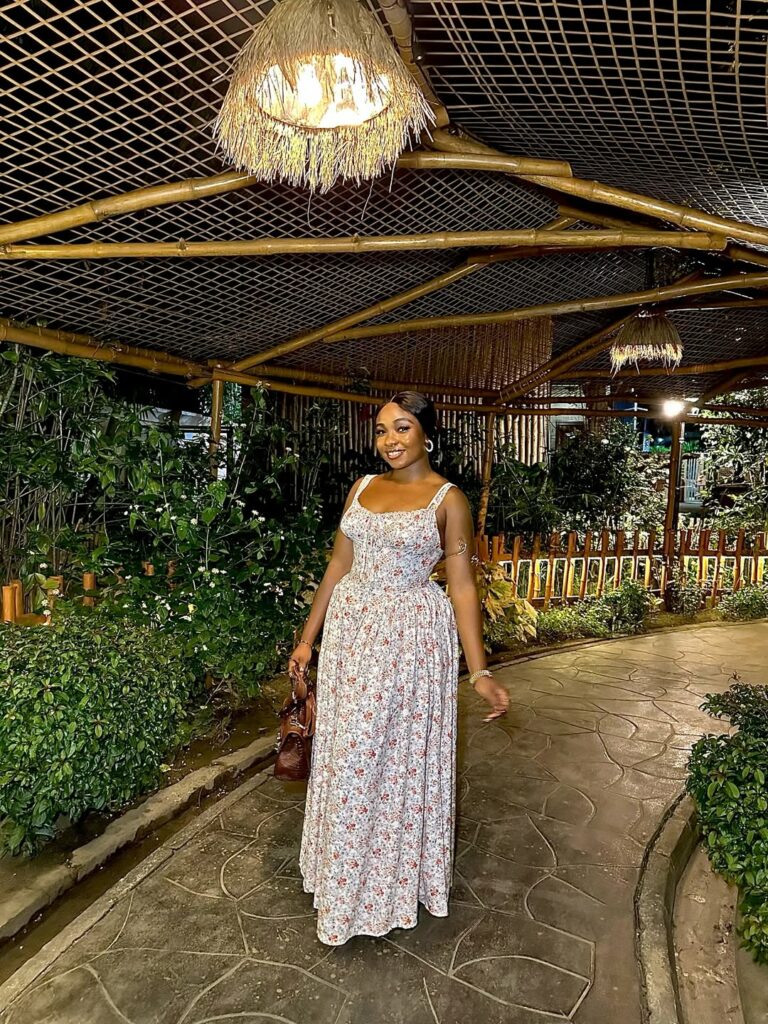Lifestyle
Nigeria’s First Treehouse Restaurant

Port Harcourt just got a dining upgrade, and it is literally above the rest. TreeHouse Afriq, Nigeria’s first treehouse restaurant, offers a one-of-a-kind experience where good food meets fresh air and leafy views.
A Meal with a View
Forget ordinary tables and chairs. Here, you will enjoy your jollof rice, grilled fish, or plantain fritters while perched among branches, with the gentle sway of trees adding a calming soundtrack. It provides a quiet escape from the city’s hustle without leaving it behind.
Modern Flavors, Local Roots

TreeHouse Afriq specializes in Afrofusion cuisine, blending traditional Nigerian flavors with a contemporary twist. Every dish is thoughtfully prepared, and the drinks menu features cocktails that enhance rather than compete with the flavors on your plate. It offers familiar food, served from a fresh perspective.
The Atmosphere Matters

The magic of TreeHouse Afriq goes beyond the food; the setting takes center stage. Open-air seating, soft lighting, and natural greenery create a warm, intimate space perfect for casual dinners, small celebrations, or simply enjoying a quiet evening out.
Setting a New Standard

While Lagos has its share of treehouse-themed spots, TreeHouse Afriq stands as the first in Port Harcourt to bring this concept to life fully. It reflects how Nigerian dining is evolving, offering experiences that extend beyond food and appealing to both locals and visitors seeking something memorable.
Plan Your Visit
Located at No. 1A Bank Road, Old GRA, beside the NBA House, TreeHouse Afriq is easy to find and impossible to forget. Whether you are a local resident or just visiting, a meal here promises an experience that will linger in memory long after the last bite.
Sex & Relashionships
‘Future Faking’ Is the Dating Red Flag You Can’t Ignore

In today’s dating culture, conversations about the future often start early. Someone talks about marriage within weeks, mentions introducing you to their family, or casually includes you in plans that stretch years ahead. On the surface, it can feel reassuring. In reality, this pattern has a name, and it rarely leads where it claims to be going.
Future faking describes a situation where one partner speaks confidently about long-term plans without taking any steps to make those plans real. The promises sound specific enough to feel sincere, yet nothing in the present changes. There is no progress, no clarity, and no movement beyond conversation. Over time, the future becomes a holding space rather than a destination.

Photo Credit – Google
What makes future faking difficult to identify is that it often looks like commitment. The language is intentional. The confidence is convincing. But commitment shows up in behaviour, not projections. Someone who genuinely plans a future begins to align their choices with it. They create timelines, address obstacles, and make decisions that affect both people, not just the person being reassured.
In many dating situations, especially where expectations around marriage and stability are culturally significant, future faking can subtly extend relationships that are no longer growing. One partner remains emotionally invested, waiting for clear next steps that are repeatedly postponed. The other maintains closeness without accountability, often shifting the goalposts when questions become more direct.

Photo Credit – Google
This behaviour does not always come from malice. Some people enjoy the comfort of emotional security without the responsibility that commitment requires. Others are unsure of what they want but use future plans to avoid difficult conversations in the present. Regardless of intent, the effect is the same. Time passes, expectations deepen, and clarity never arrives.
A consistent sign of future faking is vagueness. Plans are described without dates. Decisions are delayed indefinitely. Conversations about progress are met with reassurance instead of action. When pressed, the future remains flexible, conditional, or dependent on circumstances that never seem to resolve.

Photo Credit – Google
Recognising future faking is not about distrusting optimism or shutting down conversations about what lies ahead. It is about paying attention to alignment. When words repeatedly outpace actions, the imbalance becomes information. Dating is not sustained by promises alone. It is sustained by evidence of shared direction.
In the end, the most reliable indicator of intent is not how vividly someone describes the future, but how seriously they engage with the present. Where effort is consistent, plans tend to follow. Where effort stalls, promises often replace progress.
Sex & Relashionships
Dating App Worth Swiping Right on in 2026

Online dating looks different in 2026. Swiping is no longer a pastime. For many, it has become a deliberate way to meet people who fit into real life. Whether the goal is romance, companionship, or something in between, expectations are clearer than they used to be.
Here is a look at the dating apps proving useful this year, based on how people are engaging with them in real life.
Tinder: Where Everyone Seems to Be

Photo Credit – Google
Tinder continues to dominate because of its sheer user base. In major cities, it is almost impossible not to find someone nearby.
The challenge lies in filtering profiles. While some users are serious about dating, others are only interested in casual chats or brief connections. Making Tinder work depends on being honest in your profile and clear in your conversations from the start.
Bumble: Women Call the Shots

Photo Credit – Google
Bumble stands out because it puts women in control of conversations. After a match is made, only women can initiate contact, which helps reduce unwanted messages.
The app goes beyond dating. It also allows users to build friendships or make professional connections. This flexibility makes it appealing to people juggling busy work and social schedules.
Badoo: Casual or Serious? You Decide

Photo Credit – Google
Badoo offers flexibility. Features such as “people nearby” and video chats make it easy to meet new people without much pressure.
The user base is mixed. Some are looking for meaningful relationships, while others prefer light conversations. Being selective and engaging thoughtfully improves the experience.
Apps Built with Local Culture in Mind

Photo Credit – Google
Alongside global platforms, locally focused apps are gaining attention. These services are designed with cultural context and communication habits in mind, making them easier to navigate and more practical for everyday use.
Location-based matching, profile verification, and fewer paywalls increase the chances of real-life meetings rather than endless online chatting.
A Quick Reality Check

Photo Credit – Google
No dating app is perfect. Fake profiles, unclear intentions, and ghosting still happen. What makes the difference is how the platform is used:
Be honest in your profile
Decide early whether you want friendship, casual dating, or a long-term relationship
Communicate clearly and respectfully
People who follow these basics tend to have better experiences, regardless of the app they choose.
Which App Should You Try?

Photo Credit – Google
Tinder: Best for a large pool of potential matches
Bumble: Ideal if you prefer women to initiate conversations
Badoo: Works for those open to both casual chats and serious connections
Local apps: Useful for features shaped around cultural familiarity and practical use
In 2026, dating apps are tools, not solutions on their own. The right choice depends on your goals, lifestyle, and level of intention. With patience and clarity, these platforms can still lead to meaningful connections. In a year where time feels increasingly limited, the right dating app is the one that respects it.
Lifestyle
New Year’s Resolutions: Do People Really Stick to Them?

Every December 31, as the clock chimes midnight, millions of people make promises to themselves: to eat healthier, save more money, quit bad habits, draw closer to God, learn a skill, and be a better person. In Nigeria, it is everywhere, with people sharing their New Year resolutions on WhatsApp, friends talking about new year, new me, and social media flooded with motivational posts.
At the heart of all these resolutions is a simple desire to self-improvement.
Scientists call this the fresh start effect. Certain dates, like the beginning of a new year, birthdays, or other milestones, give people a mental sense of starting over. It feels like letting go of last year’s mistakes and a sense of renewal, which makes the idea of change more appealing.

Photo Credit – Google
Resolutions often falls into two categories. Some are about moving toward something positive, like exercising regularly, or learning a new skill. Others focus on stopping or reducing bad habits, like drinking less alcohol, quitting smoking, or reducing unhealthy food intake.
Research shows goals that focus on achieving something positive some intend to work better because people feel motivated from within and enjoy the process. Plans focused on avoiding something bad can more stressful, and more likely to be abandoned when progress doesn’t come quickly.
One reason so many resolutions fail isn’t a lack of willpower, it’s how they’re set. Many people aim too high, like going to the gym every day or saving half their salary in the first month. Some make vague promises, like eat healthier or be a better person, without a clear plan to make it happen. Daily demands increase, work piles up, and motivation drops. Without small, manageable steps or someone to keep you accountable, many resolutions fade by February.

Photo Credit – Google
The key to success is keeping it simple and practical. Walk instead of running, save a little every week, swap soda for water, or pray consistently for guidance. Track your progress, share your goals with friends, and celebrate small wins along the way. Setbacks do not equal failure. it’s just part of the process.
Ultimately, resolutions aren’t about perfection, they’re about direction. They remind us that it’s always possible to reset intentions, even if the first attempt didn’t work. And in a busy, unpredictable country like Nigeria, even small gains matter.
-

 Celebrity News5 months ago
Celebrity News5 months agoToke Makinwa Shares Graceful Pregnancy Reveal
-

 Sex & Relashionships4 months ago
Sex & Relashionships4 months agoSigns You Have Abandonment Issue and How to Heal
-

 Models5 months ago
Models5 months agoDorothy Anador Celebrates Her Best Self in Birthday Photoshoot
-

 Music5 months ago
Music5 months agoKokopee Drops EP ‘All I Need It’s Kokopee
-

 Celebrity News5 months ago
Celebrity News5 months agoAsake Shows off New Hair on Stage
-

 Movies4 months ago
Movies4 months agoMovie Review: Task Official Trailer
-

 Top Xclusiv4 months ago
Top Xclusiv4 months agoItalian Designer Giorgio Armani Dies at 91
-

 Music4 months ago
Music4 months agoAyra Starr – Hot Body Video Review
-

 Celebrity Style4 months ago
Celebrity Style4 months agoEniola Badmus Creates a Deck-of-Cards Visual in Photoshoot
-

 Fashion5 months ago
Fashion5 months agoFive Mini Outfits From Esther Morgan That Are Screenshot Worthy



























